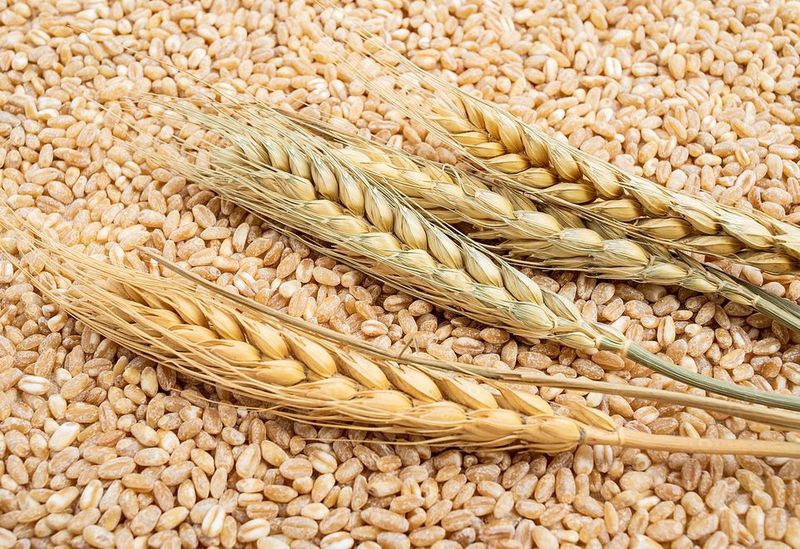Egyptian farmers expand wheat production to help country boost food security

Talaat al-Sisi, an Egyptian farmer who has been self-sufficient in producing wheat for his family for years, decides to expand wheat production for his country, which is suffering from the global supply chain interruption and price hikes during the Russian-Ukraine conflict.
“Next season, I will enlarge my land to grow wheat in order to help the country secure the grain,” the 50-year-old man told Xinhua as he walked through his farm located in the Menoufia Governorate, north of the capital Cairo.
Al-Sisi said that he will increase his wheat farm from 6 to 13 feddans (1 feddan=1.038 acres).
He noted that the government has helped farmers to produce bountiful and high-quality crops, providing them with seeds, fertilizers and agricultural care.
“At the end of the season, the government always buys the crops from farmers in a good price. I think it is time to help my country,” he said.
Al-Sisi is one of the Egyptian farmers who plan to enlarge or have enlarged their wheat farms, partly because it is important for the food security of Egypt, the world’s largest importer of wheat.
“Producing wheat at home secures the lives of our people and the generations to come,” he said.
Egypt used to import about 12 million tonnes of wheat annually, but the number dropped significantly in 2021 to about 5.5 million tonnes after several years of agricultural land reclamation and local wheat planting.
The total yield of the wheat crop in this season is expected to reach up to 10 million tonnes, Egyptian Agriculture Minister El-Sayed El-Quseir said in a statement earlier this week.
Thanks to the government’s efforts to encourage farmers to expand their agricultural land, the cultivated area of wheat has exceeded 3.6 million acres, said the minister.
The minister affirmed that Egypt has a strategic reserve for the wheat crop that is sufficient for 4 to 5 months, urging farmers to increase wheat deliveries to the government.
To encourage farmers to sell their wheat production, the Egyptian government has also increased this year’s procurement price and announced that the wheat supply season will start by April 1, instead of mid-April, in an attempt to hold up the strategic reserves.
Additionally, Egypt banned the export of wheat, fava beans, lentils, pasta, and all kinds of flour for the next three months to be able to provide millions of its citizens with key food supplies at lower-than-market prices under its subsidy ration system.
“The agricultural area in Egypt is limited, and working to add new agricultural lands through the reclamation of desert lands takes time, effort and high cost,” Egyptian economist Karim Al-Omda told Xinhua.
He noted that the government is keen to provide for the needs of wheat by relying on local production in an attempt to curb inflation and ensure market discipline.
Read also
Abbey Commodities – General Partner of BLACK SEA GRAIN.KYIV-2026
Black Sea & Danube Barley Market at a Turning Point: Demand Pressure and Regi...
US Supreme Court rules Trump’s emergency duties illegal
Mercosur: Protective measures for European agriculture
US makes concessions on pulses in new trade deal with India
Write to us
Our manager will contact you soon



